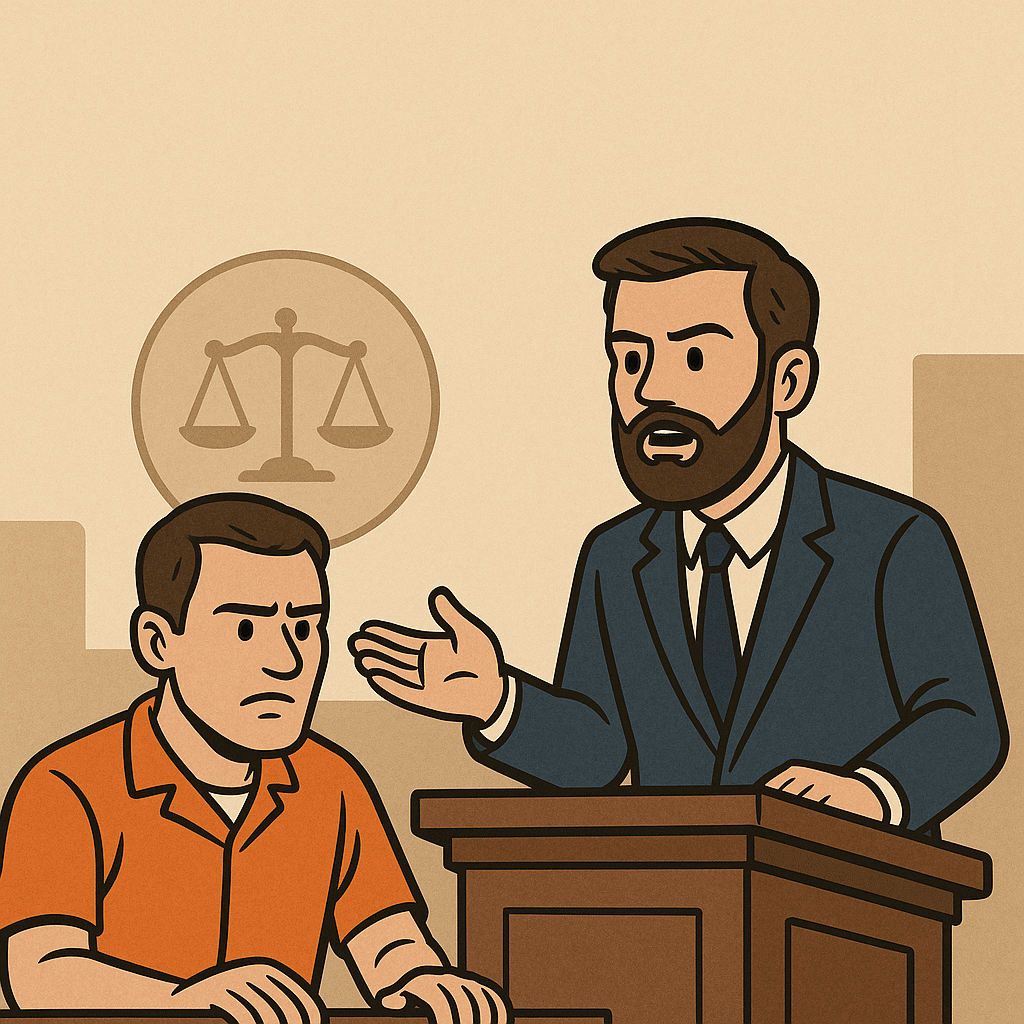
Facing a murder charge in Maryland is one of the most serious legal challenges anyone can experience. Your future, your freedom, and even your life may be on the line. Whether you’re accused of first-degree murder, second-degree murder, or an attempted homicide, it’s critical to understand your legal options and build a strong defense with the help of a seasoned Southern Maryland criminal lawyer.
Understanding Murder Charges in Maryland
Under Maryland law, murder is divided into degrees based on intent and premeditation.
- First-degree murder involves a deliberate, premeditated, and willful killing, or a homicide committed during the commission of a felony (like robbery or arson). It carries a potential life sentence without parole.
- Second-degree murder refers to intentional but non-premeditated killings or those committed in the heat of passion. Penalties may still include up to 40 years in prison, but with potential for parole depending on the circumstances.
The classification of your charge can impact not only the possible sentence but also how your case is prosecuted. Prosecutors must prove specific elements beyond a reasonable doubt—such as intent, causation, and identity—giving a skilled defense attorney critical opportunities to challenge the case.
Common Defenses to Murder Charges
Each case is unique, but several defenses frequently arise in murder cases in Maryland:
- Self-Defense or Defense of Others: If you reasonably believed you were in imminent danger of serious harm, you may be legally justified in using deadly force.
- Lack of Intent: Second-degree murder requires intent. If your lawyer can show the act was accidental or lacked malicious intent, the charge could be reduced—or dismissed.
- Insufficient Evidence: The burden is on the State to prove your guilt. A good defense strategy may include challenging forensic evidence, eyewitness credibility, or surveillance footage.
- Constitutional Violations: If your rights were violated—such as during a police interrogation or unlawful search—key evidence may be suppressed.
A strategic defense will focus on identifying these weaknesses and using them to your advantage throughout the case.
Building a Strong Defense Strategy
Fighting a murder charge requires early and aggressive legal intervention. Your defense team should:
- Conduct a thorough independent investigation
- Interview witnesses and retain expert consultants
- Review bodycam footage, crime scene reports, and digital evidence
- File pretrial motions to suppress illegally obtained evidence
- Explore plea deals when appropriate—or prepare for trial
In complex cases, involving a forensic pathologist, mental health expert, or cell phone data analyst can significantly strengthen your defense. You need a lawyer who not only understands the law but knows how to coordinate a skilled team on your behalf.
Why You Need a Southern Maryland Criminal Lawyer
Maryland criminal law is complex—and local experience matters. A Southern Maryland criminal lawyer knows the prosecutors, judges, and unique procedures in counties like Charles, St. Mary’s, and Calvert. That kind of insight can make all the difference in:
- Anticipating prosecutorial strategies
- Negotiating plea agreements
- Selecting favorable juries
- Navigating county-specific sentencing patterns
At Southern Maryland Criminal Defense, we have successfully represented clients in high-stakes homicide cases and helped many avoid life-altering outcomes. When your future is at risk, trust a local advocate who knows how to fight—and win—in your jurisdiction.
What to Expect During the Legal Process
Being charged with murder starts a complex legal process. Here’s what typically happens:
- Arrest and Booking – You’ll be formally charged and held pending a bail review.
- Preliminary Hearings – A judge determines if there’s probable cause to continue.
- Grand Jury Indictment or Information Filing – The State formally files charges.
- Discovery and Investigation – Both sides gather evidence and prepare.
- Plea Bargaining or Trial – Your attorney will help you weigh options.
- Sentencing or Appeal – If convicted, you may be eligible for appeal or sentence modification.
Murder cases are often lengthy, emotionally taxing, and procedurally complicated. A trusted defense lawyer helps you navigate each phase with clarity and confidence.
Contact a Southern Maryland Criminal Defense Lawyer Today
If you or a loved one is facing a murder charge in Maryland, time is not on your side. Every minute you wait gives the prosecution a head start. At Southern Maryland Criminal Defense, we’re ready to stand between you and the government—and fight for your future.
👉 Schedule a confidential consultation now to speak directly with a Southern Maryland criminal lawyer who understands what’s at stake.
